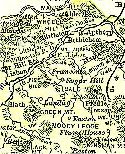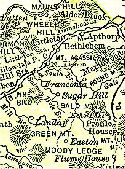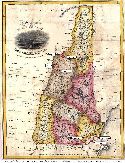Littleton, New Hampshire - History
The area was settled in 1764 and originally known as "Chiswick". The name "Chiswick" is of Saxon origin and means "Cheese Farm". The town was part of Lisbon until 1770, when it was granted as "Apthorp" in honor of George Apthorp, head of one of the wealthiest mercantile establishments in Boston, Massachusetts.
The land was later passed to the Apthorp family's associates from Newburyport, Massachusetts, headed by Colonel Moses Little, a veteran of the French and Indian War. Colonel Little held the post of "Surveyor of the King's Woods", and the town was named in his honor when it was incorporated in 1784, the same year New Hampshire became a state.
The most recent published history chronicling Littleton is subtitled "Crossroads of the North Country" with good reason. Settled on the banks of the Ammonoosuc River, Littleton has long served as a center for commerce in New Hampshire's White Mountains region.
When a dam was erected on the river in the 1790's, a sawmill and gristmill were built and stores opened nearby.
Pattenville, New Hampshire - History
Pattenville was just one of several villages comprising the township of Littleton. Willowdale grew up along the Ammonoosuc. Apthorp on the east end of town, had mills, a school, and stores. The main section of town was called Chiswick. It is said some rivalries existed between these village centers, but perhaps that is only rumor.
Pattenville was originally called Rankins Mill, for James Rankin who bought an unfinished saw mill there in 1791. Rankin also bought up 1200 acres of timberland and his mill flourished for many years. Later, Wilbur Willey wrote in his book West of Littleton, the mill was owned by George Mulliken. The nearby pond, named for him, was a favorite fishing place for locals. In later years, Solomon Whiting, followed by his son, Robert, ran the mill.
The next owners of the mill were Mr. George C. Patten and his son, Frank, and eventually the village became known as Pattenville. In its heyday, the village included a grist mill, shoe factory, starch factory, blacksmith shop, cider mill, stores, school, church, and several farms. In Will Goodell's (Wilbur Willey called him "Goodall") store, you could buy clay pipes for ten cents each.
Source: North Country Stories
|
 Grafton Co., NH
Grafton Co., NH
 Northern Grafton Co.
Northern Grafton Co.
 New Hampshire
New Hampshire
|

